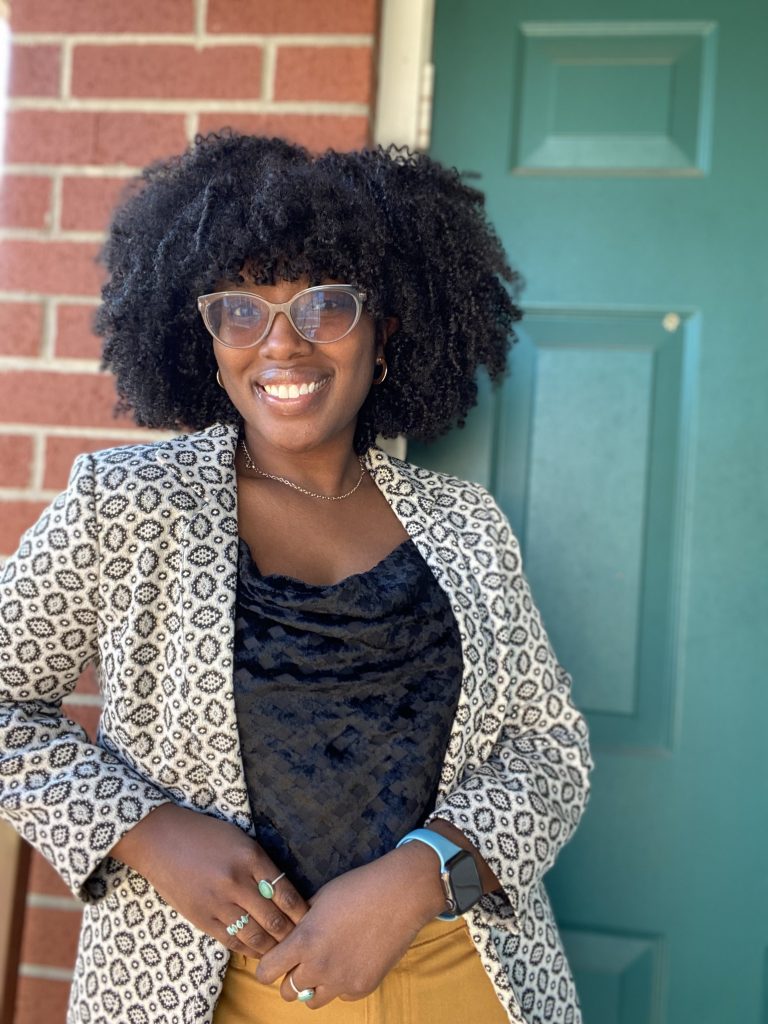By Arryanna Allen

Strong leaders make up a vital part of the successful framework in any field. This is especially the case in health care where various disciplines must collaborate effectively to formulate individualized care plans for patients. Leadership is seen in communication and collaboration, and that is especially true in health care. As a pharmacy student at Harding University, I have learned the importance of being a part of a health care team and an effective leader. Pharmacists take an oath to consider the welfare of humanity, improve the profession, advocate, accept responsibility and utilize the skill sets learned for the betterment of all patients. Though these are just a few qualities pharmacists are called to carry out, they are also qualities of effective leaders.
Leaders in pharmacy are vital because pharmacists are so easily accessible to the public. Those who are sick, caregivers or simply curious about medical concerns rely on their local pharmacists for medication information, over-the-counter remedies, immunization information and any health concerns they have before and after they see a physician. Pharmacists are often front-line health care leaders in their communities, but they also are called to lead a pharmacy team.
I have worked in various pharmacy settings over the years, and whether it be the busiest hospital in the state or a rural mom and pop pharmacy, every pharmacist I have encountered possessed an undeniable love and passion for their profession. This zeal translated into how well they treated their patients, led their stores, spoke to technicians and communicated with other health care providers. Pharmacists have a unique perspective on medicine, and they are essential to all communities.
A wise pharmacist once told me that pharmacists should never be too superior to take out the trash or too good to sweep the floor . Effective leaders do not just give orders. They do not conduct themselves in a manner suggesting they are too quintessential — too superior — for the simplest tasks. Leaders make themselves available to their teams and fill in where needed. This helps ensure that established goals are met, even if the goal is cleaning the building.
Pharmacies need professionals who lead effectively, and the Master of Arts in organizational leadership program has helped give me the tools to be the leader my community needs. The MAOL was something I had never heard of before pharmacy school. However, as I began my pharmacy studies, I realized just how important it was for me to know not only my medications and counseling points, but how to be a leader. Regardless of whether a leader has innate leadership traits or is taught to lead, one thing remains true — we can always learn more about being a reliable leader. The MAOL program has done just that for me. I joined the program to grow and improve the leadership skills I already possess. For my future patients and fellow health care workers, I want to put my best foot forward as a dependable, knowledgeable leader, and that can only happen if I challenge myself academically and remain self-aware. Throughout the MAOL program I have learned about my own leadership style and how to improve my communication, negotiations and teamwork. Though the coursework is not specifically directed towards health care, it provides the framework for anyone to become a successful leader regardless of the career field.
I am planning to use my knowledge from pharmacy school in combination with my skills from the MAOL as I strive to become a pharmacist in a leadership role within a hospital or ambulatory care setting. While I understand the significant weight leaders carry, I have a strong desire to lead. Though I still have much to learn, and I do not anticipate my journey to a lead pharmacist role to be linear or easy, I do know that taking on this educational challenge will help me achieve my goals.
In the meantime, as I prepare myself for the leadership journey ahead, I have been able to use my MAOL knowledge in the health care setting by advocating for those close to me to help them access the medical supplies and medication they need. Over the past two years, I have begun to recognize how often patients’ concerns are overlooked. While a health issue may seem trivial to a health care provider who sees such things every day, to patients even small issues have the potential to completely disrupt their lives. All patients should be taken seriously, and I have been able to assist in supporting them. Exceptional leaders listen empathetically and actively and determine with solutions to benefit the wellbeing of everyone they encounter . I’m grateful that my training as both a leader and a pharmacist will push me to consider the welfare of humanity, improve my profession, advocate, accept responsibility and utilize the skill sets learned for the betterment of all patients. I’ll also pick up that broom when needed. This is how I can help change my corner of the world for the better.